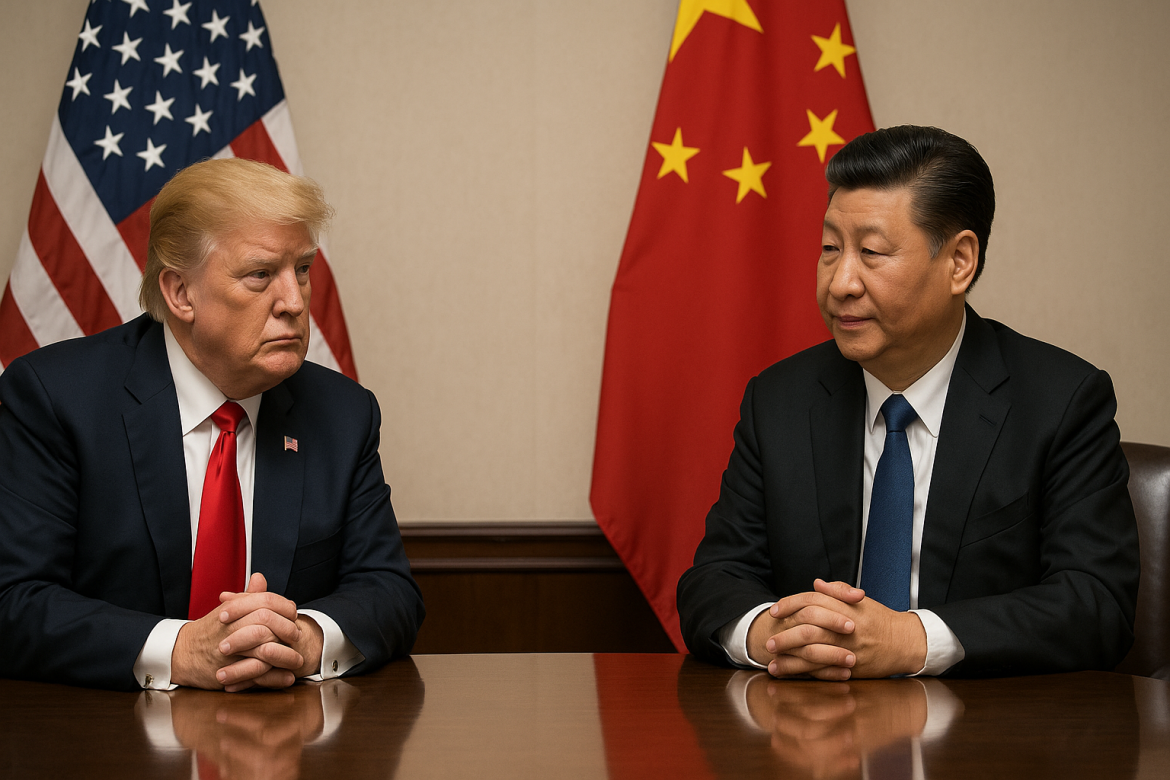The Trump-Xi meeting on Thursday is the biggest geopolitical event of recent times, and while trade headlines keep changing, this conversation strips the politics down to practicalities.
In this interview, Rishi Gupta, Assistant Director at the Asia Society Policy Institute, New Delhi, walks us through the United States’ tariff rollback against China and explains why the move is less of a theatrical surrender and more of a strategic reset.
We talk about the real heavy hitters on Beijing’s side: soybeans, fentanyl enforcement, and, most importantly, rare earths, minerals that power everything from smartphones to missiles.
Gupta explains why rare earths carry disproportionate geopolitical weight, and why promises to keep supplies flowing ease immediate pressure while leaving long-term vulnerabilities unresolved.
He also unpacks whether Washington has “blinked” or simply chosen market stability over brinkmanship, and what that decision means for Asian economies caught in the middle.
Finally, we look at enforcement: the tools, the committees, and the political will needed to keep this fragile détente from unraveling.
Excerpts:
Invezz: Trump called it an “amazing meeting,” but cutting tariffs to 47% is a big move. Do you see this as a genuine compromise or a calculated gesture?
Rishi Gupta: The reduction of tariffs from over 100% down to less than 50% signifies a thoughtful phase of trade negotiations rather than a simple gesture.
Both the US and China are major economic powers capable of calculated decisions, so framing it as one side “blinking first” misses the strategic collaboration behind the scenes.
This move reflects mutual recognition of the need to ease tensions and advance stable economic relations.
It’s less about compromise as surrender and more about a practical recalibration, acknowledging that protracted tariff battles hurt both sides and global markets alike.
Invezz: China’s side of the deal includes soybeans, rare earths, and fentanyl enforcement. Which of those do you think carries the most strategic weight?
Rishi Gupta: Among these, the rare earths component stands out as the most strategically significant.
Rare earth minerals sit at the heart of modern technology and defense manufacturing, from smartphones and EVs to fighter jets, giving Beijing a potent bargaining chip in trade talks.
Unlike soybeans or fentanyl enforcement, which carry obvious economic or social weight, rare earths blend both economic and strategic power.
Control over this sector shapes not just profits, but global influence.
That’s why progress on the rare earth front matters so much.
It’s long been one of the thorniest issues in US-China negotiations, and any breakthrough here suggests both sides are thinking beyond short-term wins, signaling a shift toward a more stable, strategically minded phase of engagement where the stakes go far beyond trade numbers.
Invezz: By trimming tariffs from 57% to 47%, has Washington blinked first, or is this a smart reset to stabilize global markets?
Rishi Gupta: This tariff cut isn’t Washington backing down; it’s a calculated reset meant to steady global markets that have been on edge for nearly a year.
After months of tit-for-tat tariffs, both the US and China have felt the drag, from tangled supply chains to shaky investor confidence.
By easing tensions now, the two sides are clearing the air for more meaningful talks ahead.
It’s less about retreat and more about strategy, a way to rebuild trust, calm markets, and set the stage for broader, longer-term agreements that actually stick.
Invezz: How might this tariff cut shift regional dynamics, especially for Asian economies like Japan, South Korea, and India that sit between the two giants?
Rishi Gupta: The tariff adjustment could significantly influence regional dynamics, encouraging Asian allies such as Japan, South Korea, and India to deepen their engagement with the US-China relationship.
These economies often find themselves balancing trade and security interests between the two giants.
By moderating tariffs, the US signals its role as a proactive player committed to stable global trade, which these countries likely welcome.
Asian allies may be incentivized to maintain strong ties with Washington even if this means assuming increased responsibilities in regional security and economic collaborations, aiming to avoid being marginalized amid Sino-American competition.
Invezz: Rare earths are crucial for tech and defense supply chains. Does Beijing’s promise to keep them flowing actually reduce US vulnerability, or just postpone the risk?
Rishi Gupta: Beijing’s commitment to maintaining the supply of rare earths to the US is significant but only postpones the underlying risk rather than eliminating it.
Rare earth minerals are central to critical industries, including technology and defense, so reliable access is vital for US strategic interests.
While the deal reduces immediate vulnerability by avoiding supply cutoffs, the US remains dependent on China, and the risk of future leverage or disruption is deferred, not resolved.
This underscores the importance of the US diversifying supply chains and investing in alternative sources to reduce long-term strategic exposure.
Invezz: Finally, both sides framed this as a win, but what mechanisms exist to enforce the deal or prevent another flare-up in six months?
Rishi Gupta: Both sides are calling the deal a win, but the real test lies in how it’s enforced.
Trade agreements often look good on paper, with committees, regular check-ins, and dispute channels built to keep things on track.
The challenge is making those systems actually work.
Enforcement ultimately comes down to trust, transparency, and political will, three things that have wavered more than once in past US–China negotiations.
Keeping the lines of communication open and using their deep economic ties as a stabilizing force will be key to avoiding another breakdown.
The next few months will reveal whether this deal marks a genuine turning point or just another pause in a cycle of flare-ups and resets.
The post Interview: ‘Washington’s tariff cut is less about retreat and more about strategy,’ says ASPI’s Rishi Gupta on Trump-Xi meeting appeared first on Invezz

